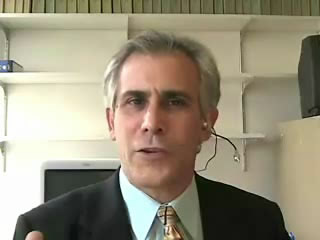
Iraq actively researched and later employed weapons of mass destruction from 1962 to 1991, when it destroyed its chemical weapons stockpile and halted its biological and nuclear weapon programs. The fifth president of Iraq, Saddam Hussein, was internationally condemned for his use of chemical weapons during the 1980s campaign against Iranian and Kurdish civilians during and after the Iran–Iraq War. In the 1980s, Saddam pursued an extensive biological weapons program and a nuclear weapons program, though no nuclear bomb was built. After the Persian Gulf War (1990-1991), the United Nations located and destroyed large quantities of Iraqi chemical weapons and related equipment and materials, and Iraq ceased its chemical, biological and nuclear programs.

The Gulf War, codenamed Operation Desert Shield for operations leading to the buildup of troops and defense of Saudi Arabia and Operation Desert Storm in its combat phase, was a war waged by coalition forces from 35 nations led by the United States against Iraq in response to Iraq's invasion and annexation of Kuwait arising from oil pricing and production disputes. The war is also known under other names, such as the Persian Gulf War, First Gulf War, Gulf War I, Kuwait War, First Iraq War or Iraq War, before the term "Iraq War" became identified instead with the 2003 Iraq War.
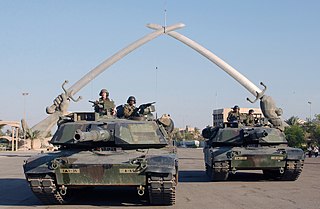
The United States public's opinion on the invasion of Iraq has changed significantly since the years preceding the incursion. For various reasons, mostly related to the unexpected consequences of the invasion, as well as misinformation provided by US authorities, the US public's perspective on its government's choice to initiate an offensive is increasingly negative. Before the invasion in March 2003, polls showed 47–60% of the US public supported an invasion, dependent on U.N. approval. According to the same poll retaken in April 2007, 58% of the participants stated that the initial attack was a mistake. In May 2007, the New York Times and CBS News released similar results of a poll in which 61% of participants believed the U.S. "should have stayed out" of Iraq.

The Iraqi no-fly zones were a set of two separate no-fly zones (NFZs) that were proclaimed by the United States, United Kingdom, and France after the Gulf War of 1991 to protect the ethnic Kurdish minority in northern Iraq and Shiite Muslims in the south. Iraqi aircraft were forbidden from flying inside the zones. The policy was enforced by U.S., British, and French aircraft patrols until France withdrew in 1998. While the enforcing powers had cited United Nations Security Council Resolution 688 as authorizing the operations, the resolution contains no explicit authorization. The Secretary-General of the UN at the time the resolution was passed, Boutros Boutros-Ghali called the no-fly zones "illegal" in a later interview with John Pilger.

The Dinar (Arabic: دينار, is the currency of Iraq. It is issued by the Central Bank of Iraq and is subdivided into 1,000 fils, although inflation has rendered the fils obsolete since 1990.
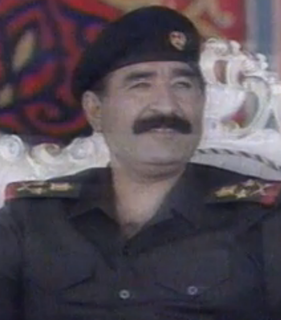
Hussein Kamel Hassan al-Majid was the son-in-law and second cousin of Iraqi leader Saddam Hussein. He defected to Jordan and assisted United Nations Special Commission (UNSCOM) and International Atomic Energy Agency (IAEA) inspection teams assigned to look for weapons of mass destruction in Iraq.
Laurie Mylroie is an American author and analyst who has written extensively on Iraq and the War on Terror. The National Interest first published this work in an article entitled, "The World Trade Center Bombing: Who is Ramzi Yousef? And Why it Matters." In her book Study of Revenge (2000), Mylroie laid out her argument that the Iraqi regime under Saddam Hussein had sponsored the 1993 World Trade Center bombing and subsequent terrorist attacks. She claimed those attacks were part of an ongoing war that Saddam waged against America following the cease-fire to the 1991 Gulf War. Less than a year after her book was published, the September 11 attacks occurred. Mylroie subsequently adopted the view that Saddam had been responsible for the attacks, defending it on many occasions, including before the 9/11 Commission.
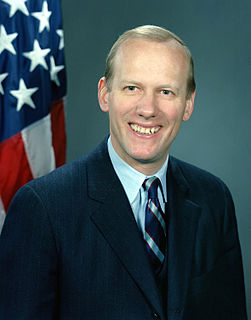
William Howard Taft IV is an attorney who has served in the United States government under several Republican administrations. He is the son of William Howard Taft III and the great-grandson of President William Howard Taft.
A war correspondent is a journalist who covers stories firsthand from a war zone. They were also called special correspondents.

Michael R. Isikoff is an American investigative journalist who is currently the Chief Investigative Correspondent at Yahoo! News. He is the co-author with David Corn of the book entitled Russian Roulette: The Inside Story of Putin's War on America and the Election of Donald Trump, published on March 13, 2018.

Embedded journalism refers to news reporters being attached to military units involved in armed conflicts. While the term could be applied to many historical interactions between journalists and military personnel, it first came to be used in the media coverage of the 2003 invasion of Iraq. The United States military responded to pressure from the country's news media who were disappointed by the level of access granted during the 1991 Gulf War and the 2001 U.S. invasion of Afghanistan.

The Invasion of Kuwait on 2 August 1990 was a two-day operation conducted by Iraq against the neighboring State of Kuwait, which resulted in the seven-month-long Iraqi occupation of the country. This invasion and Iraq's subsequent refusal to withdraw from Kuwait by a deadline mandated by the United Nations led to military intervention by a United Nations-authorized coalition of forces led by the United States. These events came to be known as the first Gulf War and resulted in the expulsion of Iraqi forces from Kuwait and the Iraqis setting 600 Kuwaiti oil wells on fire during their retreat.

The White House Iraq Group was an arm of the White House whose purpose was to inform the public about the purpose of the 2003 invasion of Iraq. The task force was set up in August 2002 by White House Chief of Staff Andrew Card and chaired by Karl Rove to coordinate all of the executive branch elements in the run-up to the war in Iraq. However, it is widely speculated that the intention of the task force was "escalation of rhetoric about the danger that Iraq posed to the U.S., including the introduction of the term 'mushroom cloud'".

The Iraqi Navy (IqN) is one of the components of the military of Iraq. Its primary responsibilities are the protection of Iraq's coastline and offshore assets. Initially called the Iraqi Coastal Defense Force, its official name was changed on 12 January 2005.

Australia was a member of the international coalition which contributed military forces to the 1991 Gulf War, also known as Operation Desert Storm. More than 1800 ADF personnel were deployed to the Persian Gulf from August 1990 to September 1991. In August 1990, two frigates HMAS Adelaide and HMAS Darwin and the replenishment ship HMAS Success left for the Persian Gulf. HMAS Success had no air defences so the Army 16th Air Defence Regiment deployed on this ship. On 3 December 1990, HMAS Brisbane and HMAS Sydney (IV) relieved HMAS Adelaide and HMAS Darwin. On 26 January 1991, HMAS Westralia replaced HMAS Success. A Navy Clearance diving team was also deployed for explosive ordnance and demolition tasks. Australian ships were in danger of mines and possible air attacks. In a number of recorded incidents, HMAS Brisbane encountered free floating mines, on one occasion narrowly avoiding a collision. Both HMA Ships Brisbane and Sydney encountered significant air threat warnings from Iran and Iraq throughout the initial period of the commencement of the Desert Storm Campaign. The detection of land based silkworm missiles from Iran throughout the campaign also added to the challenges for both crews as well as the multi-national Naval Forces.
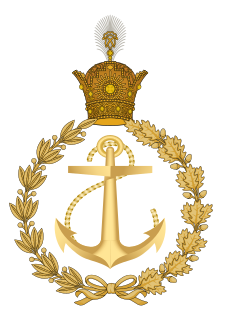
The Iranian Navy, traditionally located in the shallow waters of the Persian Gulf, has always been the smallest of the country's military forces. An Iranian navy in one form or another has existed since Achaemenid times in 500 BC. The Phoenician navy played an important role in the military efforts of the Persians in late antiquity in protecting and expanding trade routes along the persian gulf and Indian Ocean. With the Pahlavi dynasty in the 20th century that Iran began to consider building a strong navy to project its strength into the persian gulf and Indian Ocean. In more recent years, the country has engaged in domestic ship building industries in response to the western-backed Iraqi invasion of Iran, which left it without suppliers during an invasion.

The Iraq War was a protracted armed conflict that began in 2003 with the invasion of Iraq by a United States-led coalition that overthrew the government of Saddam Hussein. The conflict continued for much of the next decade as an insurgency emerged to oppose the occupying forces and the post-invasion Iraqi government. An estimated 151,000 to 600,000 or more Iraqis were killed in the first three to four years of conflict. In 2009, official US troops were withdrawn, but American soldiers continued to remain on the ground fighting in Iraq, hired by defence contractors and private military companies. The U.S. became re-involved in 2014 at the head of a new coalition; the insurgency and many dimensions of the civil armed conflict continue. The invasion occurred as part of a declared war against international terrorism and its sponsors under the administration of U.S. President George W. Bush following the unrelated September 11 terrorist attacks.

Michael R. Gordon has been a national security correspondent for The Wall Street Journal since October 2017. Previously he was a military and diplomacy correspondent for The New York Times for 32 years. During the first phase of the Iraq War, he was the only newspaper reporter embedded with the allied land command under General Tommy Franks, a position that "granted him unique access to cover the invasion strategy and its enactment". He and General Bernard E. Trainor have written three books together, including the best-selling Cobra II. As a journalist for The New York Times he was the first to report Saddam Hussein's alleged nuclear weapons program in September 2002 with the article "U.S. Says Hussein Intensifies Quest for A-Bomb Parts.".
MSNBC Documentaries is the umbrella title of a series of documentaries co-produced by NBC News and MSNBC.



